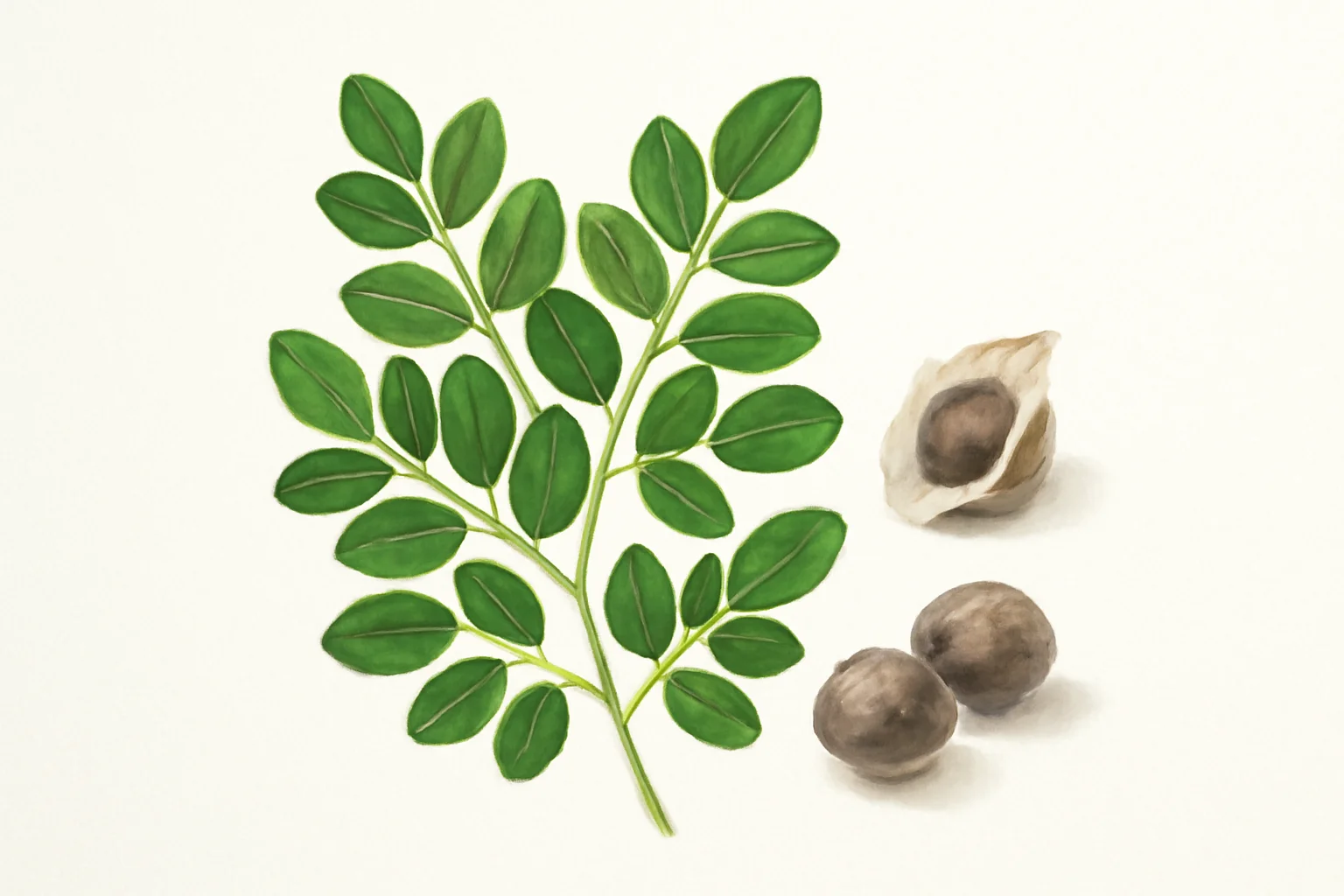
The Wonders of Moringa: Why Should We Incorporate It into Our Diet?
The moringa, also known as the “miracle tree,” has gained increasing popularity among those interested in natural health in recent years. This plant is native to the Indian subcontinent but has now spread to many tropical and subtropical regions. The variety of nutrients found in moringa leaves, fruits, and seeds is impressive, and it has been used in traditional medicine for thousands of years. Rich in vitamins, minerals, and antioxidants, it is no surprise that moringa is considered a superfood in many parts of the world.
Moringa is particularly popular among those following vegetarian and vegan diets, as it is an excellent source of protein and contains numerous essential amino acids. Additionally, moringa leaf powder can easily be incorporated into everyday nutrition, whether it’s enhancing smoothies, soups, or salads. People are increasingly seeking natural solutions, and moringa is an alternative that is delicious, nutritious, and versatile.
In the following sections, we will explore various aspects of moringa, including its nutrient profile, health benefits, and ways to use it, all of which can contribute to a healthy and balanced lifestyle.
The Nutrient Profile of Moringa
The nutrient profile of moringa is outstanding, as it is rich in vitamins and minerals. Its leaves are particularly valuable, containing high amounts of vitamin A, vitamin C, vitamin E, and a wide range of B vitamins, including folic acid. Vitamin A contributes to maintaining normal vision, vitamin C has strong antioxidant properties, and vitamin E provides protection against oxidative stress in cells.
Moreover, moringa is a significant source of calcium and iron. Calcium is essential for the health of bones and teeth, while iron plays an important role in blood formation and oxygen transport. Moringa seeds also contain an interesting oil that is rich in essential fatty acids, which can help maintain cardiovascular health.
Moringa is also available in powder form, obtained by drying and grinding the leaves. This powder can easily be incorporated into daily diets and represents an extremely concentrated source of nutrients. A teaspoon of moringa powder contains about 2-3 grams of nutrients, which may be enough to cover part of the daily vitamin and mineral needs.
Due to its nutrient profile, moringa may be particularly recommended for those who lead an active lifestyle or wish to increase their daily nutrient intake. Adding moringa to the diet can help boost vitality and energy levels, as the nutrients it contains support the body’s functioning.
The Health Benefits of Moringa
Moringa has numerous health benefits, many of which are supported by scientific research. One of its most notable advantages is its anti-inflammatory properties, which may help prevent chronic diseases such as cardiovascular issues, diabetes, and arthritis. The antioxidants in moringa help neutralize free radicals that can damage cells and contribute to premature aging.
Furthermore, moringa may assist in regulating blood sugar levels. Some studies suggest that extracts made from moringa leaves can lower blood sugar levels, which can be particularly beneficial for diabetics. Additionally, consuming moringa may support cholesterol reduction, contributing to heart health.
Moringa’s digestive support effects are also significant. The fibers it contains help maintain gut flora health, contributing to regular bowel movements and nutrient absorption. For those struggling with digestive issues, moringa can be a great supplement.
It is also worth mentioning moringa in terms of mental health. Some research indicates that consuming moringa can improve mood, reduce stress and anxiety, and enhance concentration. The nutrients provided by moringa, particularly B vitamins, which are important for nervous system function, may contribute to improved cognitive functions.
Ways to Use Moringa
The versatility of moringa allows it to be consumed in various forms and ways. Fresh leaves can be used to make delicious salads, enhanced by their natural green flavor. Moringa powder is excellent for adding to smoothies, yogurts, or oatmeal, making it easy to incorporate into daily diets.
Another popular way to use moringa powder is to enrich smoothies. Its flavor is slightly green, making it a good match for fruits and other vegetables. Additionally, tea made from moringa leaves is also popular, providing a refreshing effect and containing numerous nutrients.
Moringa is available not only as food but also as a dietary supplement in capsule form. These offer a practical solution for those who do not enjoy powdered products but wish to benefit from moringa’s positive effects. When consuming moringa in supplement form, it is always important to adhere to the recommended dosage and consult a professional.
Moreover, moringa can also be applied externally. Its oil can be used to hydrate and nourish the skin, as it is rich in fatty acids and antioxidants. Moringa oil may help with skin rejuvenation and the treatment of skin conditions such as acne or dry skin.
Warning
It is important to note that while moringa has many beneficial effects, it does not replace professional medical advice. If you are struggling with any health issues, always consult your doctor or a professional before introducing new dietary supplements or making nutritional changes. Maintaining a balanced diet and a healthy lifestyle is essential, even alongside moringa consumption.

